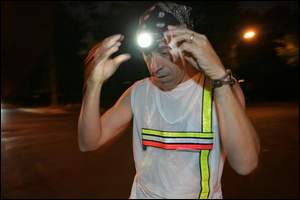
Late Friday, a federal judge held that the “Graves Amendment” is unconstitutional. The 2005 federal law abolished vicarious liability of long-term automobile lessor s (edit: and renters) based solely on ownership. Thus, states such as New York that hold the owners of cars vicariously liable for the negligence of people they permit to drive their cars, saw their state statutes or common law superseded by federal legislation. One defense firm had written when the law was passed that:
s (edit: and renters) based solely on ownership. Thus, states such as New York that hold the owners of cars vicariously liable for the negligence of people they permit to drive their cars, saw their state statutes or common law superseded by federal legislation. One defense firm had written when the law was passed that:
This law is sure to change the landscape of motor vehicle accident litigation throughout the United States.
One of the remarkable things about this landmark piece of legislation was that it was slipped into a 900 page bill in the wee hours of the morning at a House-Senate conference, and had never been the subject of floor discussion or debate. According to the same article from the defense firm, the legislation affected Florida, Connecticut, Maine, and mostly New York.
But U.S. District Court Judge Michael Moore, sitting in the Southern District of Florida, dumped the law on its head, become the first federal judge to declare the federal meddling in state business to be unconstitutional, finidng that the law violates the Commerce Clause. The decision is here: Vanguard-v-Huchon.pdf. The law had previously been held unconstitutional in New York by a trial court judge, violating both the Tenth Amendment and the Commerce Clause.
The legislation has been a source of concern for the clients of personal injury law practitioners, not simply due to the hypocrisy of an allegedly conservative band of politicians sticking their nose into state matters, but because it allowed owners to rent or lease their cars without regard to the liability concerns of renting to people who use those cars in a negligent manner.
The Washington, DC-based Center for Constitutional Litigation represented the car crash victim. In a press release (update: a press release is below), they wrote:
“In this statute Congress did not even try to regulate commerce. It told the states what their tort law had to be, whether it affected interstate commerce or not. The Constitution does not give Congress that power.”
These cases are sure to go up to appellate courts.
(Eric Turkewitz is a personal injury attorney in New York)
—————————————————————————-
Addendum September 19, 2007:
This press release was received via email from the American Association for Justice:
Last week the Center for Constitutional Litigation scored a
major win that furthers our fight to assure that victims of corporate
negligence or misconduct can hold wrongdoers accountable in the civil
justice system.
In a ruling with wide implications for federal preemption and
vicarious liability, the U.S. District Court for the Southern District
of Florida on September 14 declared the Graves Amendment
unconstitutional. That amendment had given immunity to automobile rental
agencies for harm caused by their vehicles (Vanguard Car Rental v.
Huchon, Case No. 06-10082-CIV-Moore/Garber, USDC SD FL).
In 2005, the Graves Amendment (49 U.S.C. Section 30106) was
snuck into a 900-page transportation appropriations bill without review
from relevant congressional committees. The move intentionally
pre-empted state laws that imposed vicarious liability on rental car
companies. The amendment was the prized lobbying success of the
politically active rental car industry, which invested a substantial sum
in campaign contributions in the effort.
The Florida ruling holding the Graves Amendment unconstitutional
came in a declaratory judgment action brought by a group of rental car
companies against a person who had been injured in a collision with a
rental car. The United States intervened to defend the statute’s
constitutionality. However, U.S. District Judge K. Michael Moore found
the amendment “is an unconstitutional overreaching of Congress’ power
under the Commerce Clause.”
“Under the rationale set forth” by the rental car companies and
the United States, Judge Moore noted, “this Court is hard pressed to
think of any type of state legislation which could not be pre-empted by
Congress, including state taxes.” Simply put, the ruling gives rental
car companies a powerful incentive to assure that their customers are
adequately insured. Striking down the Graves Amendment also helps
ensure that victims of car accidents with rented or leased vehicles will
be adequately compensated for their injuries.
The ruling however could ultimately have wide repercussions
regarding the federal government’s preemption powers. In recent years,
Congress has shown little reluctance to legislate in areas of
traditional state concern. Courts, led by the U.S. Supreme Court, have
found such over-reaching legislation in violation of the Constitution.
CCL has numerous cases against the Graves Amendment pending in
Florida state courts, having won many on a statutory interpretation
argument that this federal court chose not to follow. CCL also is
working closely with American Association for Justice members and
affiliated state associations in New York and Connecticut and is counsel
in cases pending in those states.
The CCL entered the case at the request of the attorneys for the
victims, Patricia M. Kennedy and Thomas Scolaro of Leesfield Leighton
and Partners, P.A. in Miami, to address the constitutional issues. John
Vail, CCL Vice President and Senior Litigation Counsel, and Andre Mura,
CCL Litigation Counsel, did the briefing on the constitutional issues,
with Mura arguing the case.
I’m sure you all join me in congratulating CCL for this
milestone victory.
====================================
Addendum – October 24, 2007: Avis has asked me to take down their trademarked logo from this post, as per the comments here. I’ve addressed the issue in a subsequent post: Avis Tells Me Cease And Desist on Use Of Its Logo.
Addendum – October 29, 2007: Dear Avis (A Public Response To Your Trademark Complaint On My Blog)
Updated, August 22, 2008: The 11th Circuit Court of Appeals has upheld the constitutionality of the Graves Amendment.
 It’s not every day I land on the front page of the local sports section, above the fold no less. But I think the story fits in with personal injury law given the countless ways people get hurt, so I want to discuss it. (Runners’ safety a high priority as days grow shorter.)
It’s not every day I land on the front page of the local sports section, above the fold no less. But I think the story fits in with personal injury law given the countless ways people get hurt, so I want to discuss it. (Runners’ safety a high priority as days grow shorter.)

